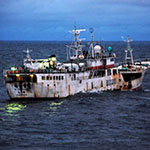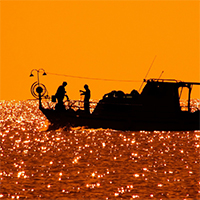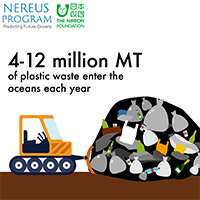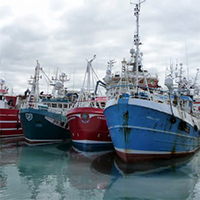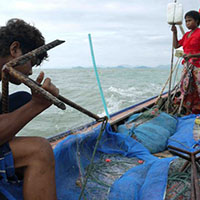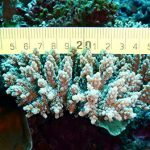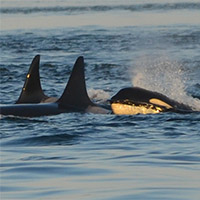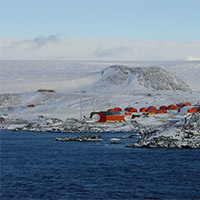Illegal foreign fishing and lack of reporting threaten Sierra Leone’s fisheries sector
The study estimates that more than 42,000 tonnes of fish were caught illegally in 2015 alone.
Mimi E. Lam wins Conservation Beacon Award
Awarded for her pioneering of an ethical approach to the conservation of marine resources, both natural and cultural, through interdisciplinary research and community engagement at the science-policy interface.
Subsidies promote overfishing and hurt small-scale fishers worldwide
Large-scale fisheries receive about four times more subsidies than their small-scale counterparts, with up to 60 per cent of those subsidies promoting overfishing.
A healthy ocean will benefit global sustainable development
Restored ocean will alleviate poverty, provide jobs, and improve global health, finds new Nippon Foundation-UBC Nereus Program report
Global seafood trade flows and developing economies
Seafood exceeds the trade value of sugar, maize, coffee, rice and cocoa combined. But where is this seafood going and who is most benefiting?
Rashid Sumaila receives Benchley Ocean Award for Science
He received the award at a gala ceremony at the Smithsonian’s National Museum of Natural History in Washington, D.C.
Marine conservation must consider human rights: An appeal for a code of conduct
The impacts of marine protected areas can undermine people’s rights or stop them from their livelihoods
New coral bleaching database to help predict fate of global reefs
A UBC-led research team has developed a new global coral bleaching database that could help scientists predict future bleaching events.
Apex marine predators affected by human-made pollutants and climate change
Human contaminants, exacerbated by climate change, are impacting polar bears, killer whales.
Antarctica’s biodiversity not doing as well as hoped
Experts, including IOF’s Deng Palomares, debunked the popular view that Antarctica and the Southern Ocean are in a better environmental shape than the rest of the world.
